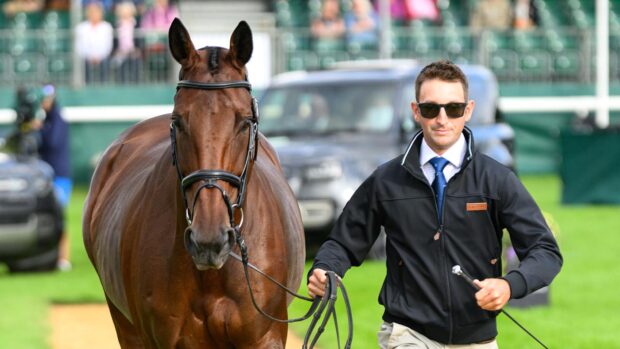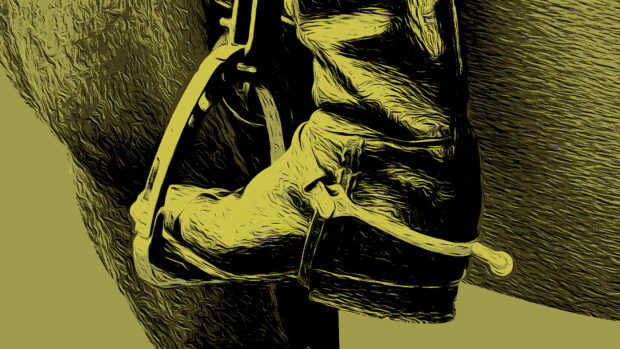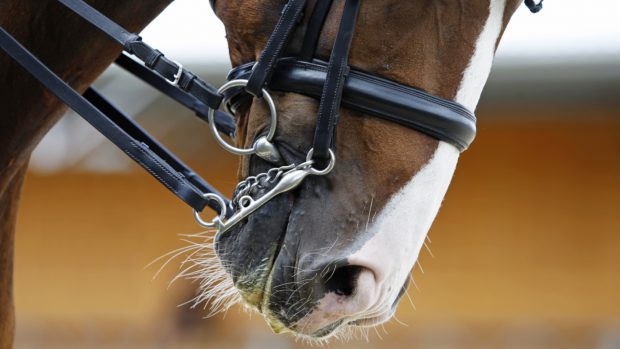A team vet who injected a showjumper’s horse at a Nations Cup event without his knowledge, causing a positive dope test, is facing disciplinary action as the rider has his ban reduced.
Austrian rider Felix Koller was provisionally suspended for two years after his gelding Captain Future 3 tested positive for banned substance diisopropylamine, a drug that dilates the blood vessels, in urine and blood samples taken at the St Gallen Nations Cup leg, Switzerland, on 2 June 2019. The drug has been “used and abused” in sports such as racing and endurance due to its alleged effects of increasing oxygen utilisation and glucose uptake.
In July 2020 the FEI told the FEI Tribunal an agreement had been reached with the rider. In the case summary, an FEI spokesman said analysis of the gelding’s samples revealed they contained the range of 45-70ug/ml of diisopropylamine. This is considered a very high concentration, indicating that the substance was administered to the horse intravenously and was “highly unlikely” to have been the result of contaminated feed or supplements.
The summary stated that the rider is very careful about the veterinary treatment his horse receives and he has strict procedures in place that the horses should not receive any treatment without his permission. In addition he keeps veterinary records that confirm the Captain Future 3 has never been treated with the prohibited substance. The only treatment the gelding had received in the past year was a steroid injection in the coffin joint.
The FEI spokesman said treatment at events is only performed by the designated event vet, and at St Gallen this was the Austrian team vet. An invoice provided by the vet showed he had administered several products to the gelding, without the rider’s knowledge. From the invoice it can be concluded the gelding was treated every day during the event (30 May to 2 June), but the invoice did not provide information as to what products were administered. The FEI contacted the vet for clarification of the exact substances and products and asked him to provide medical records confirming this.
The vet explained to the FEI there was no veterinary record, which under regulations is required for any treatment. He submitted additional information that showed he had administered “biodil” injections.
In a statement the vet told the FEI: “The original Biodyl was not available for a long time. That is why we obtained the biodil from Equimed USA. As a declaration of the producer it’s a compounded product with the same ingredients as Biodyl.”
The FEI said this statement was “false” since Biodyl and biodil have different components and ingredients. Biodyl is a commonly used equine supplement produced in Europe and widely used at FEI events but biodil has a different composition and is produced in the US for export only. The FEI looked carefully into the details of each product the vet said he administered to the gelding and found there were several discrepancies.
Felix told the FEI the vet treated his horse on the day of the Nations Cup without his permission or knowledge.
“We still don’t know what he administered. My groom was present during the treatment and had already made a statement. In addition the treatment was not in a treating box,” said Felix. The statement from the rider’s groom said she saw the vet inject the horse with two to three injections on the day of the Nations Cup.
The rider added that in a phone call on 6 September 2019, the vet told Felix he had given the gelding injections. The vet told the rider he should not tell anyone, and admitted that under FEI rules injections may not be performed on the day of competition.
The FEI spokesman said despite the fact it has not been confirmed exactly which products and the ingredients of the products the vet injected, the organisation concluded it was “plausible and probable” that the positive dope sample had been caused by one of the numerous injections given by the vet. The FEI is satisfied Felix had established on a balance of probabilities that the vet administered the prohibited substance, and therefore also established on a balance of probabilities how the substance entered the horse’s system.
Article continued below…

Driver urinating in horsebox caused positive dope test: showjumper’s suspension lifted
The European team bronze medal-winning showjumper’s horse had tested positive for a metabolite of tramadol, at a CSI3* event in

Rider’s positive dope test caused by weight loss supplement
The rider said she bought the supplement online believing it contained 100% natural ingredients

Subscribe to Horse & Hound magazine today – and enjoy unlimited website access all year round
The FEI added it had carefully considered the circumstances of the case and agreed Felix bore no significant fault and negligence. He is a “young talent” and a member of the A Young Riders Academy 2019 programme which includes education on welfare, rules and regulations and anti-doping. He is employed at the Schockemöhle stable with experienced professionals who have a great knowledge of veterinary care, feed and anti-doping. The Nations Cup event was one of the first in which Felix had been included as a member of the Austrian national team, and he had no reason to suspect a vet would treat his horse without his knowledge.
The Austrian national federation has removed the vet as a team vet after the incident, and the FEI is considering opening separate disciplinary proceedings against him in his capacity of support personnel.
The FEI Tribunal reviewed the case summary and the agreement between the FEI and Felix and reduced the rider’s period of ineligibility to one year. The period of provisional suspension from 7 August 2019 was credited against the suspension meaning the rider is ineligible until 6 August 2020. He was fined 1,500 CHF (£1,247). Both parties can appeal the decision to the Court of Arbitration for Sport within 21 days.
Horse & Hound magazine, out every Thursday, is packed with all the latest news and reports, as well as interviews, specials, nostalgia, vet and training advice. Find how you can enjoy the magazine delivered to your door every week, plus options to upgrade to access our H&H Plus online service which brings you breaking news as it happens as well as other benefits.




